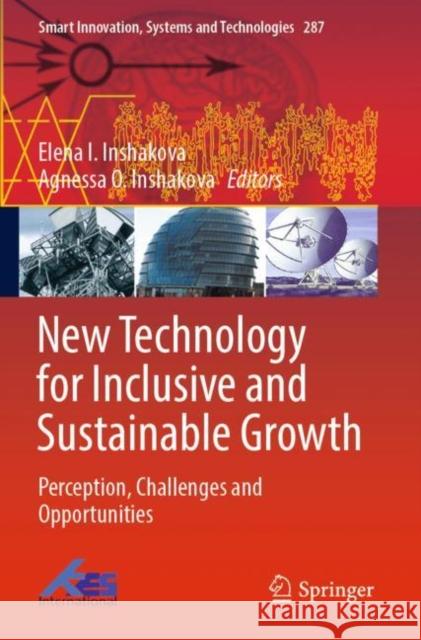New Technology for Inclusive and Sustainable Growth: Perception, Challenges and Opportunities » książka
New Technology for Inclusive and Sustainable Growth: Perception, Challenges and Opportunities
ISBN-13: 9789811698064 / Angielski / Miękka / 2023 / 308 str.
New Technology for Inclusive and Sustainable Growth: Perception, Challenges and Opportunities
ISBN-13: 9789811698064 / Angielski / Miękka / 2023 / 308 str.
(netto: 651,74 VAT: 5%)
Najniższa cena z 30 dni: 655,41
ok. 16-18 dni roboczych.
Darmowa dostawa!
The book offers a multidisciplinary investigation into the economic, technological, environmental, and social impacts of Industry 4.0 technology that ensures inclusive and sustainable growth development of regions and countries. Along with identifying new opportunities that new technology provides for inclusive growth, the book aims to propose theoretical substantiation and develop economic, institutional, organizational, and information mechanisms that aid to reduce and eliminate the potential economic, social, and environmental risks. A broad multidisciplinary approach integrating research capabilities of economic and administrative sciences, artificial intelligence and computer sciences, pedagogy and linguistics, latest findings in the above mentioned scientific areas, as well as empirical evidence and pilot innovative research projects conducted by the contributors, allowed them to draw conclusions and develop recommendations for achieving inclusive growth in industrial and agricultural production, innovation and investment activities, management and environment protection, healthcare and education associated with the use of new technology. The contributors hope that empirical materials, innovative developments, and suggestions inspire scientific research, encourage applied studies, and supplement training programs in economic, administrative, social, and computer sciences at the advanced universities and research institutions, in the post-Soviet territory, in particular.
The book offers a multidisciplinary investigation into the economic, technological, environmental, and social impacts of Industry 4.0 technology that ensures inclusive and sustainable growth development of regions and countries. Along with identifying new opportunities that new technology provides for inclusive growth, the book aims to propose theoretical substantiation and develop economic, institutional, organizational, and information mechanisms that aid to reduce and eliminate the potential economic, social, and environmental risks. A broad multidisciplinary approach integrating research capabilities of economic and administrative sciences, artificial intelligence and computer sciences, pedagogy and linguistics, latest findings in the above mentioned scientific areas, as well as empirical evidence and pilot innovative research projects conducted by the contributors, allowed them to draw conclusions and develop recommendations for achieving inclusive growth in industrial and agricultural production, innovation and investment activities, management and environment protection, healthcare and education associated with the use of new technology. The contributors hope that empirical materials, innovative developments, and suggestions inspire scientific research, encourage applied studies, and supplement training programs in economic, administrative, social, and computer sciences at the advanced universities and research institutions, in the post-Soviet territory, in particular.











